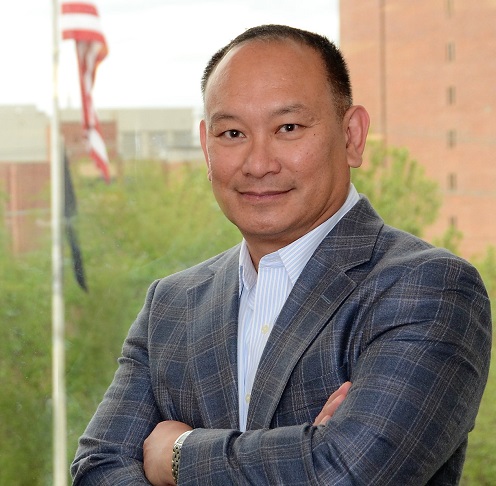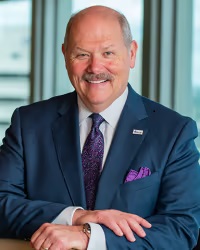By Dr. Miguel H. Lapuz, MD, MBA
Network Director, VA Sunshine Healthcare Network (VISN 8)
Nearly two years ago, as the world began experiencing the worst pandemic in modern times and we didn’t yet understand how the coronavirus would behave or for how long, the VA responded swiftly to meet the needs of our Veteran patients in an ever-evolving environment.
Our patients trust VA to provide them with exceptional and well-coordinated care from the very first day they enter our facility through end of life. Even during a pandemic.
We took immediate steps to ensure our health care facilities were safe: entry screening for COVID-19 symptoms, modifications in waiting rooms, testing our most vulnerable patients and those who cared for them and more. Our VISN 8 Clinical Contact Center staff were the “first line of defense” triaging patients in a virtual setting, even conducting video, telephone, or secure chat visits with doctors and nurse practitioners. Center staff assisted more than 2.4 million patients, with 88% first contact resolution.
When much of the state, including community health systems, was shut down, our doors remained open, including same day appointments and urgent care. Since March 2020, we completed over 5.4 million in-person appointments. During the height of the pandemic, we experienced challenges in referring patients to community care providers as many specialists curtailed their operations. VA’s investment in developing and using virtual care, well before the pandemic, allowed our providers the flexibility to quickly convert in-person appointments to virtual visits unlike many private sector health care providers. More than 3.6 million virtual appointments were completed. Many of our patients continue to prefer these types of appointments, even today, due to the convenience of getting needed care no matter where they may be.
In December 2020, we saw promising COVID-19 vaccines roll-out and we focused much energy on quickly vaccinating as many patients and staff as possible to help curb the pandemic. To date, we have administered more than 778,000 total vaccines. We continue these efforts today by providing booster shots to Veterans, their spouses, and caregivers; we know vaccination is the best protection against this persistent virus.
Just as we were beginning to see a light at the end of the tunnel in June of this year, the Delta variant wreaked havoc on the nation’s health systems and especially here in Florida. Significant increases in severe illness and hospitalizations required us to realign many staff to care for very sick patients.
As part of VA’s fourth mission to support communities during national disasters, VA facilities in Florida accepted COVID-19 patient transfers from small rural community hospitals who were overrun. In the early days of the pandemic from April to September 2020, more than 200 VA employees provided critical support to 82 community nursing homes all over the state saving lives and mitigating spread and infection during the process.
Thankfully, COVID-19 case rates have stabilized, and we are seeing sustained decreases in hospitalizations. We continue making headway in returning many of our services to in-person appointments. Our employees have persevered through the toughest of days and nights all the while ensuring our patients received the exceptional care they have earned and deserved.
What the world will look like in the coming months and years ahead as we continue to manage health care operations is uncertain. However, one thing will remain constant: our enduring commitment to providing lifelong care to our nation’s heroes where and when they need it. As Florida continues to recover from this pandemic, we encourage all eligible Veterans to contact their nearest VA facility to learn more about how VA is making it easier and safer than before to receive the health care they need.
Dr. Miguel H. Lapuz, MD, MBA, serves as network director for the VA Sunshine Healthcare Network which includes all VA health care facilities in Florida, South Georgia, Puerto Rico and the U.S. Virgin Islands. He oversees health care delivery through a system of eight hospitals (two of which are integrated) more than 60 primary care and specialty outpatient clinics; eight nursing homes; and five domiciliaries. VISN 8 serves a 1.5 million Veteran population. More than 630,000 Veterans actively use health care services at VISN 8 facilities.



























